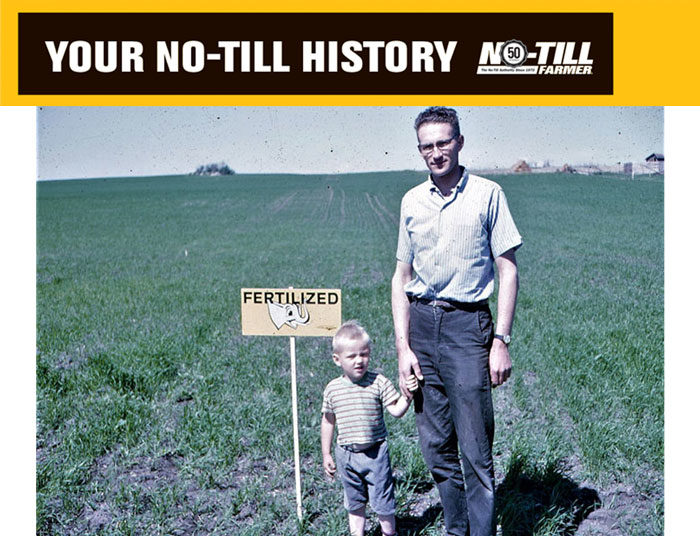Editor’s Note: John Schmeiser, whom Lessiter Media works closely with on our Farm Equipment Dealer Division properties, is the CEO of the Western Equipment Dealers Association, based in Kansas City, Mo. John grew up in Saskatchewan and if his name is familiar to no-till farmers, it’s likely due to his late father, Percy Schmeiser, a farmer who battled Monsanto in court in the 1990s over Roundup-Ready Canola. Need an Amazon movie night? Check out Christopher Walken playing no-tiller Percy in the 2020 film, Percy vs. Goliath.
-- Mike Lessiter, No-Till Farmer.
Central Saskatchewan suffers from winds and historical practices of cultivation or "summer fallow" came to an end in the early 1990s when seeder manufacturers came out with zero-till seeders. Our dealership (Schmeiser’ s Garage and Central Farm Sales) sold three of them at the time – Morris, Bourgault and Flexi-Coil. As those products entered the market, we adopted them for our own farm.
Dad also planted lots of trees that were used for shelter-belts on our land. This too made a difference in limiting some of the wind erosion that was very common – every year. The area at home is all dry-land farming – so everyone quickly realized the benefit of no-till.
The old practice was to cultivate after harvest for weeds, and then again in the spring prior to planting, perhaps also harrow the fields to prepare the seed bed. Or even perhaps use a "rod-weeder" – and in some cases pick the stones. Then seed, pack the soil and then pray for rain.
Every pass dried out the soil, so no-till really made a difference in moisture retention. The average amount of bushels per acre harvested today compared to the late 1980s' (prior to no-till products) is amazing – proving that no-till makes a huge difference in dryland farming areas.
No-till is the norm today – and it really was the innovation of the western Canadian based shortline manufacturers that ushered in the no-till concept – also one that has an incredible positive financial impact for farmers and the industry as a whole.
When I grew up as a kid, it was so common to see a pristine, black soil field as you drove through the countryside -- because of the accepted practice of cultivation to control weeds in unseeded fields. Now if you drive through the same area, it’s rare that you see that. No-till is the standard and has helped with soil conservation and the benefits have increased production.
Related Links
- Seeing Your Family on the Silver Screen: https://www.farm-equipment.com/blogs/6-opinions-columns/post/20061-seeing-your-family-on-the-silver-screen
- Percy Schmeiser passed away on October 13, 2020. Read his obituary here
- Percy Schmeiser Wikipedia Page
-
Documentary: David vs. Monsanto
The 2024 No-Till History Series is supported by Calmer Corn Heads. For more historical content, including video and multimedia, visit No-TillFarmer.com/HistorySeries.







